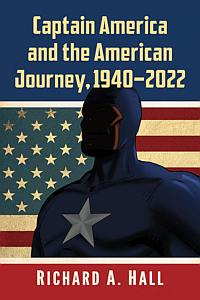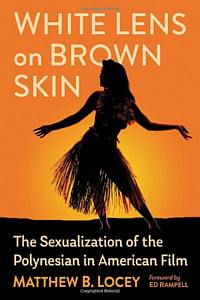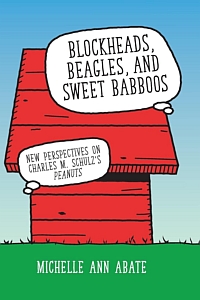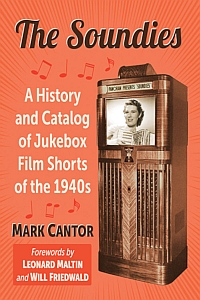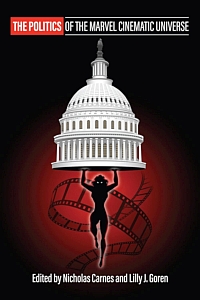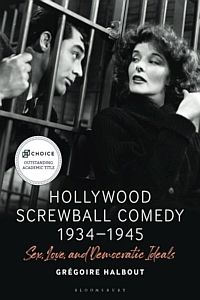Paul Meehan’s new title delves deeply into the portrayal of alien abduction and UFO phenomena in cinema, covering decades of films and cultural shifts that reflect evolving public perceptions of extraterrestrials. Certainly, the phenomena takes note of all the hysteria and sensationalism that is typical for such coverage. As such, UFO sightings and the development […]
You are browsing archives for
Tag: American Studies
Superevil: Villains in Silver Age Superhero Comics by Anke Marie Bock (2023)
Any comic book fan probably can easily name more than a handful of superheroes of the Silver Age, the time from roughly the mid-1950s until the early 1970s. And to know the superheroes also means to know their antagonists, featured in the endless battles of Batman/The Joker, Thor/Loki, The Flash/Po-Siden, or Spiderman/Green Goblin where the […]
Captain America and the American Journey, 1940-2022 by Richard A. Hall (2024)
When the powerful alliance of superheroes named The Avengers were called by Marvel Comics (or rather, by S.H.I.E.L.D.), each member represented certain traits, powers, mindsets and even ideologies. The “Sentinel of Liberty,” a nickname (turned nom-de-guerre at various occasions on countless missions) for Captain America, unlike other superheroes of the Golden Age, did not simply exist […]
White Lens on Brown Skin: The Sexualization of the Polynesian in American Film by Matthew Locey (202...
South seas fiction and later cinema as a genre, that pictures Pacific Islanders and their land, really took off as early as 1898 when the Hawaiian islands were annexed by the United States. Forerunners of the many films that would cover Polynesian culture were the magical and powerful reports of European sailors when they were […]
Blockheads, Beagles, and Sweet Babboos: New Perspectives on Charles M. Schulz’s Peanuts by Michelle
The fame and the legend of the Peanuts started on October 2, 1950, and the newspaper comic strip became a success almost immediately: at its peak, it ran in more than 2,600 newspapers simultaneously and made Charlie Brown, Snoopy and Lucy household names. 1952 saw the first edition of the Peanuts in paperback editions, where […]
The Soundies: A History and Catalog of Jukebox Film Shorts of the 1940s by Mark Cantor (2023)
The small-screen world of the short musical film, a form of media presentation usually associated with coin-operated cinematic machines of the 1940s and later decades, keeps fascinating historians, media researchers, music experts and sociologists. Even if nowadays media, video clips, music in all variations and formats, and modes of presentation are easily available on a […]
The Politics of the Marvel Cinematic Universe by Nicholas Carnes and Lilly J. Goren (eds.) (2022)
Marvel Comics, or rather, Marvel Entertainment as the corporation now has expanded into various companies responsible for diverse media enterprises, started out as one of many American comic book publishers. The many story arcs, story backgrounds, locations, family trees and so forth developed originally by Marvel‘s artists are by now complicated and span hundreds of […]
Hollywood Screwball Comedy 1934-1945: Sex, Love, and Democratic Ideals by Grégoire Halbout (2023)
With the possible exception of the Western movie and Film Noir, the American screwball comedy, that hilarious, often chaotic and highly witty style of making excellent and funny entertainment, probably is the third best liked or popular genre associated with movies made in 1940s US. It Happened One Night (Frank Capra, 1934) is very likely […]
American Film Noir Genres, Characters, and Settings by Harold Hellwig (2023)
Strongly influenced by domestic hard-boiled novels of the 1920s and 1930s, one of the most American film genres, film noir, had its boom time in the 1940s. Generally believed to have mostly vanished from studios and theaters by the late 1950s, the genre briefly resurfaces every few years in the so-called “neo noirs” of various […]



